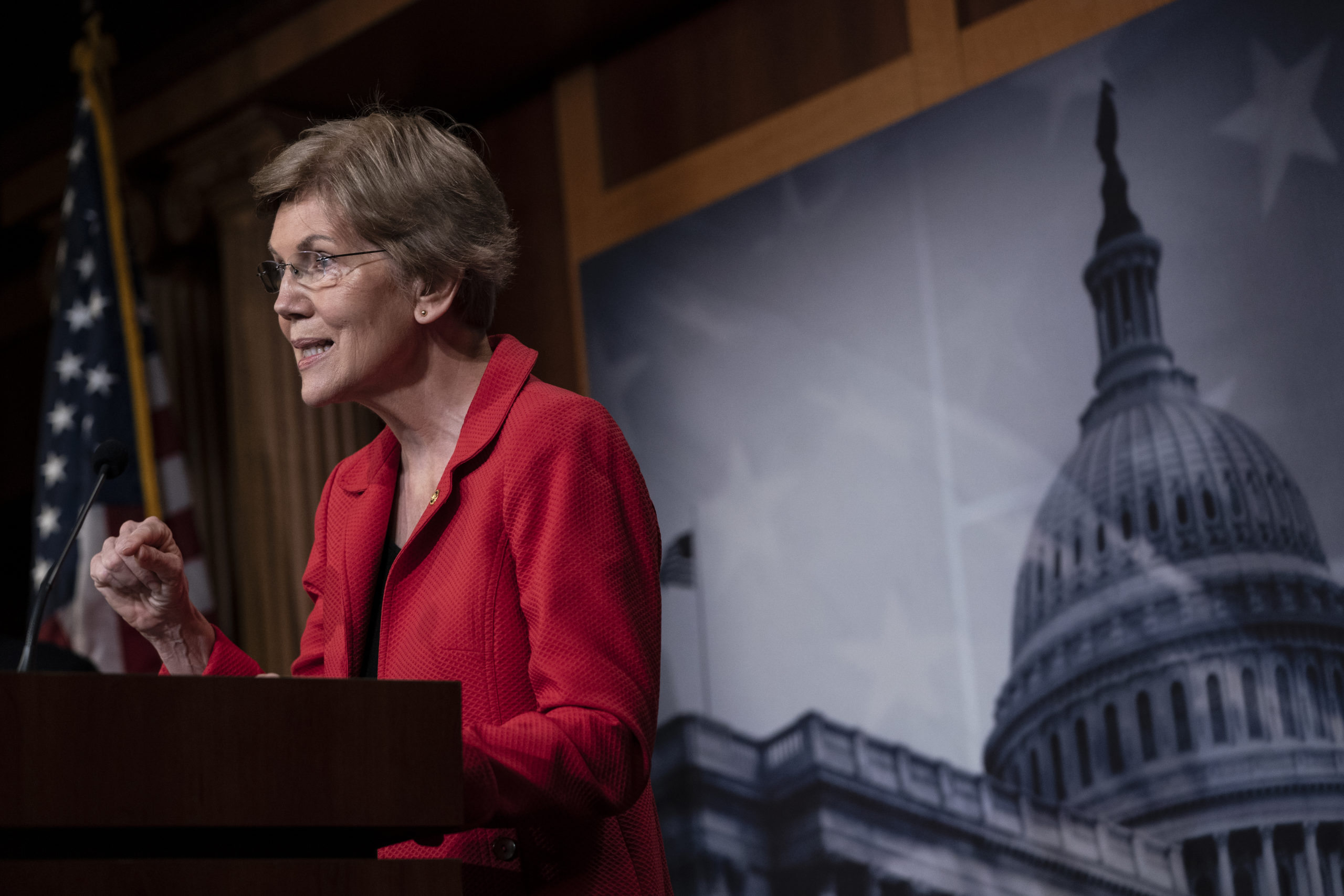Sens. Warren, Schatz Call on Fed to Suspend Bank Dividends and Increase Transparency

Sens. Elizabeth Warren (D-Mass.) and Brian Schatz (D-Hawaii) are urging Federal Reserve officials to suspend bank dividends and to provide more transparency on the way the Fed measures the ability of banks to weather a crisis, according to a letter provided exclusively to Morning Consult.
Warren and Schatz, both on the Senate Banking Committee, said in a letter sent Tuesday night to Fed Chair Jerome Powell and Fed Vice Chairman for Supervision Randal Quarles that their concerns are “especially disturbing” after a report that Senate Banking Committee Chairman Mike Crapo (R-Idaho) is working on legislation that would allow bank regulators to exclude certain items on their balance sheet when figuring out capital requirements, effectively allowing banks to take on more risky assets.
The legislation did not make it into the latest Senate Republican coronavirus stimulus package, but it could still be included in later negotiations and inserted into the final bill, according to two people familiar with the matter.
In June, when the Fed announced stress test results, the central bank suspended stock buybacks and capped dividend payments — but stopped short of blocking them altogether — for the country’s largest banks. Several policy experts, including the Obama-appointed Federal Reserve Governor Lael Brainard, had pressed the Fed to suspend bank dividend payments.
Failing to suspend dividends “is a grave error that could have serious consequences for financial stability amidst a severe recession,” Warren and Schatz wrote. “Banks should be conserving capital to bolster their ability to withstand future losses and to support lending to businesses and households.”
During the stress tests, the Fed also considered how large banks would fare in a quick recovery, a gradual recovery and a W-shaped recovery from the coronavirus pandemic. The central bank only released aggregate information, rather than providing data for individual banks, and asked that all banks resubmit their capital plans taking into consideration the fallout from COVID-19.
The senators also found fault with the Fed’s decision to use the results of its stress test, whose scenarios were announced in February, well before anyone knew how badly the pandemic would hurt the economy.
“These analyses and actions the Fed has taken based on their results are incomplete, insufficient and lack the transparency and analytical rigor that is necessary to understand and address the risks of this pandemic to financial security,” the letter stated.
The Democratic senators asked that the Fed release a slate of data to the public by Aug. 11, including estimated changes in all capital ratios for individual banks in different coronavirus scenarios, not just in aggregate, and pressed for an answer as to whether the Fed found any issues in an individual bank’s capital planning.
“Transparency is a fundamental pillar of the post-crisis stress tests,” the letter said. “It is critical to ensuring public confidence in the banking system and in making sure that policymakers and analysts have access to all the information needed to address the ongoing public health and economic crisis.”
Claire Williams previously worked at Morning Consult as a reporter covering finances.